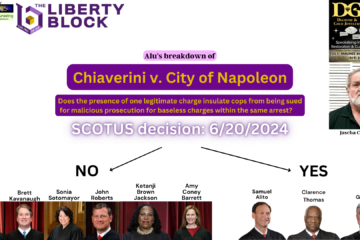We are in! A week late from the original start date but we now have access to the course. A day after posting my article “WTF OMG”, asking why the course had not started on the scheduled date, I got a follow notification on Instagram from the one and only James O’Keefe himself! A promising start.
So here we are, at the beginning of our journey. Stepping into the realm of ethics. The foundation of the class states “The Ethics Masterclass sets the stage for a deep dive into the ethical quandaries that every investigative reporter may inevitably face.”
O’Keefe comes in swinging. You can tell he carries the weight of ethics from ample experiences. The video is set in a university classroom with a group of college students. O’Keefe starts his introduction by reminding us why journalists exist and are of vital importance to society. The job of a journalist is “To shame the devil”, as said by Walter Lippman. To call out what is secret and make what is not known.
O’Keefe asks the students to define what an investigative journalist is. Ironically, he quotes the NYT, stating that it is a journalist’s duty “to operate without being afraid and without being partial.” This was their foundation 125 years ago. “Without fear or favor” was the slogan.
Now this next part gets a bit personal for me. He shows a clip of a video quoting Rush Limbaugh “getting them on tape being who they are.”
I get chills hearing this because of a situation I experienced three years ago, when I was a field reporter for a progressive newspaper. I filmed a board meeting where they were calling people on the right terrorists, thugs, and fascists. I released it to the public.
It was just that: a video of people being who they are. What came next was shocking. I was threatened to be sued or thrown in prison if I did not cease and desist.
I was directly ordered to delete and remove all content. I reached out to Project Veritas at the time for support and never heard back from them. Without legal support, I felt that I had no choice but to comply, and I removed the video. I decided to cut ties with the news organization.
This brings us to the next point of the ethics class. Is it okay to deceive and lie to someone about your true intentions as a journalist? It’s an ethical dilemma that presents itself to anyone doing an investigation. Do you hide the truth of your intentions to expose evil or wrongdoings? O’keefe argues that investigative journalists have a moral obligation to deceive their subjects in order to tell the truth to their audience. He then uses two very explicit examples. One took place in Trenton, New Jersey where a president of the education association was filmed covertly talking about keeping child abuse hidden. He stated, “if you hit the kid, you hit the kid. It is what it is”. Mr. O’Keefe goes on to ask the class, now what if one of these children were one of your own? How would that motivate you in showing the public the truth? The parents and the people deserve to know. The subject being recorded has a high risk level of facing actual legal consequences, his organization may try to fight back and defend him. This could mean risking your career, position, and safety to expose the truth. The stakes are high for everyone involved. In this example, there are no easy answers and it is an investigative journalist’s responsibility to take all of these factors and possibilities into consideration. He then shares a quote by Jessica Mitford, “ethics are inherently situational.”.
Next, he tackles the concept of protecting your sources. He explains one must be willing to protect them to the extent of even facing jail time. When he asked the question to the class, none of the students were confident they would be willing to go that far.
He then highlights the commitment one must have to their sources. Keeping secrets to protect your sources is almost like an oath taken by journalists, it’s a constitutional right even if your own government puts pressure on you to give away your source’s secrets. In a quote from Nicholas Gage, he states “most important to an investigative reporter, ranking somewhere above his editor, newspaper, wife, and children, are his sources.. they are to be protected above all else.” Now there are risks with trusting your sources, including the manipulation one may face by politicians who may use journalists to assist in sharing the narrative they want the public to see. This is why it is imperative for you as a journalist to verify what is told to you by a source.
I found this an incredibly interesting point to highlight. There were a few politicians I have personally interviewed that came to mind. Friendly with the press, incredibly complementary, having all the talking points and it made me wonder about their true intentions.
He then goes on to look at 3 different case studies; the first is his deposition. He warns the class that if you’re a good journalist, you will be sued. The professor of the class who has also experienced the deposition process adds that “it’s just to shut you up”. O’keefe says that as a journalist, you will be surveilled, observed, and maybe even raided by the FBI. Obviously, the stakes are very high and a journalist has a duty to behave as if they are being watched at all times.
The second case study highlights the importance of verification. This is “what separates journalism from other forms of communication such as propaganda, advertising, fiction, or entertainment.” It’s a discipline and must be held as an absolute.
The second case study continues by highlighting that journalists must keep themselves honest and fair.
It is incredibly challenging to remain objective while covering a story. Journalists have their own thoughts, opinions, and feelings, but it is not our job to share with the public what we actually believe. We have to tell the public the story as objectively as humanly possible.
The third case study highlights the shocking case of Ashley Biden’s diary. She claimed her father was inappropriate with her when she was a child. Having this diary led to O’Keefe being raided by the FBI. A shocking video of the raid was shared where you hear O’Keefe being arrested. At this point in the course I think many people may reconsider the idea of becoming an investigative journalist. This may be O’Keefe’s way of getting rid of those who are not fully dedicated to the cause. The stakes are increasingly high for real journalists, and these realities need to be fully understood by anyone pursuing this field.
This ethics class gets to the heart of what journalists should be. Honest, objective, and committed to the truth above all else. This class is a masterpiece and O’Keefe truly is training an army of citizen journalists that are equipped to deal with this hyperpolarized, deceitful, and oppressive regime we call the united states government.
My take away from the ethics class thus far is that the stakes for journalists are at an all time high. The infrastructure for independent or citizen journalists does not exist. There is no safety net for those who are willing to risk their livelihood to inform the public. It’s a freefall, if you are threatened to be sued or thrown in prison, you’re on your own to deal with it. I am pleading with O’keefe and other journalists and advocates of truth to build up a legal support system for journalists who are dedicated to the practice of ethics. Until next time.
-KM
This article does not necessarily reflect the opinions of The Liberty Block or any of its members. We welcome all forms of serious feedback and debate.



1 Comment
Steve · October 26, 2023 at 10:02 pm
Great content debating weather I should enroll. Please keep posting more about OMG. James O’keefe is honestly a HERO I’m trying to figure out how I can help
Comments are closed.